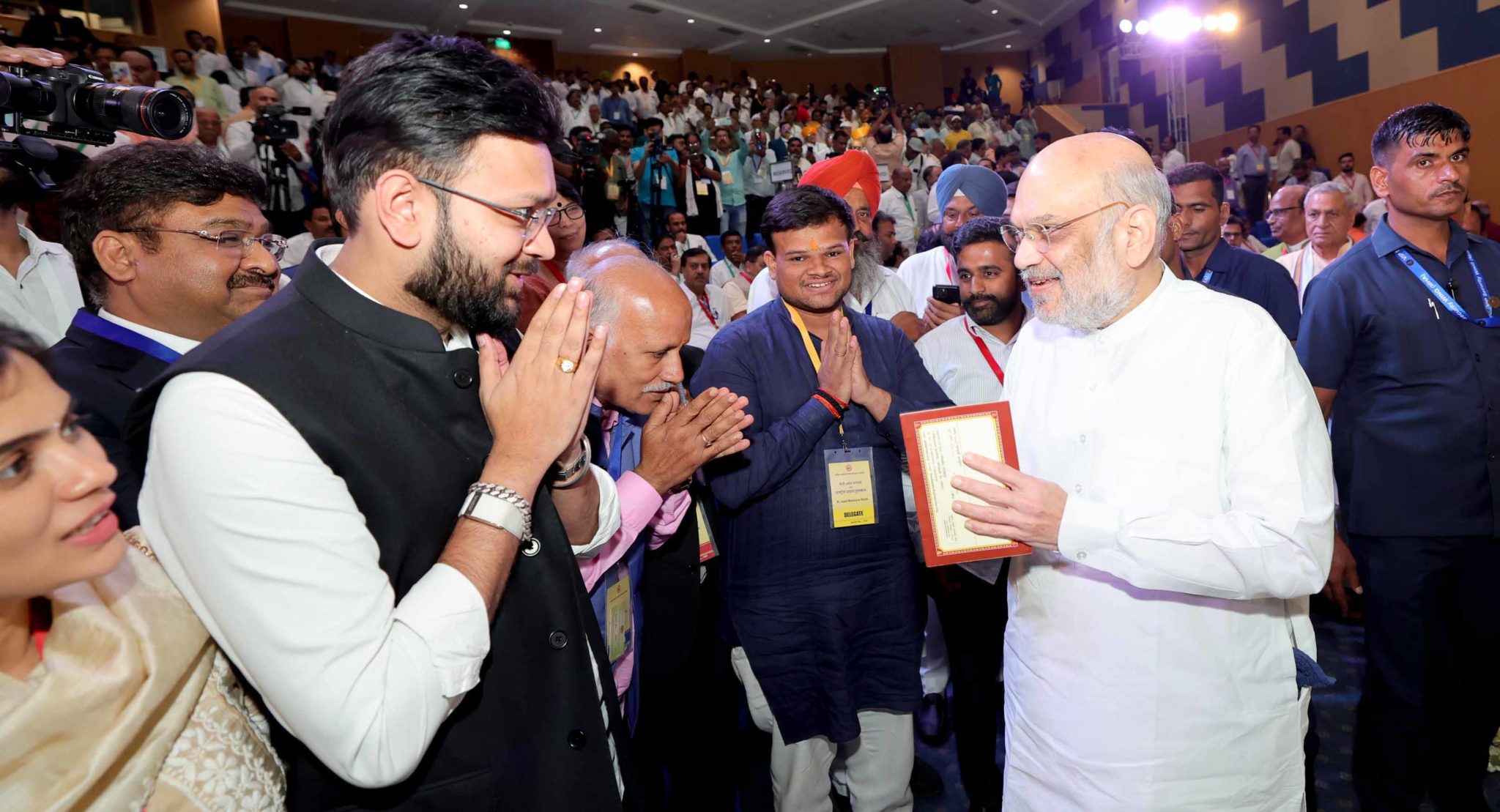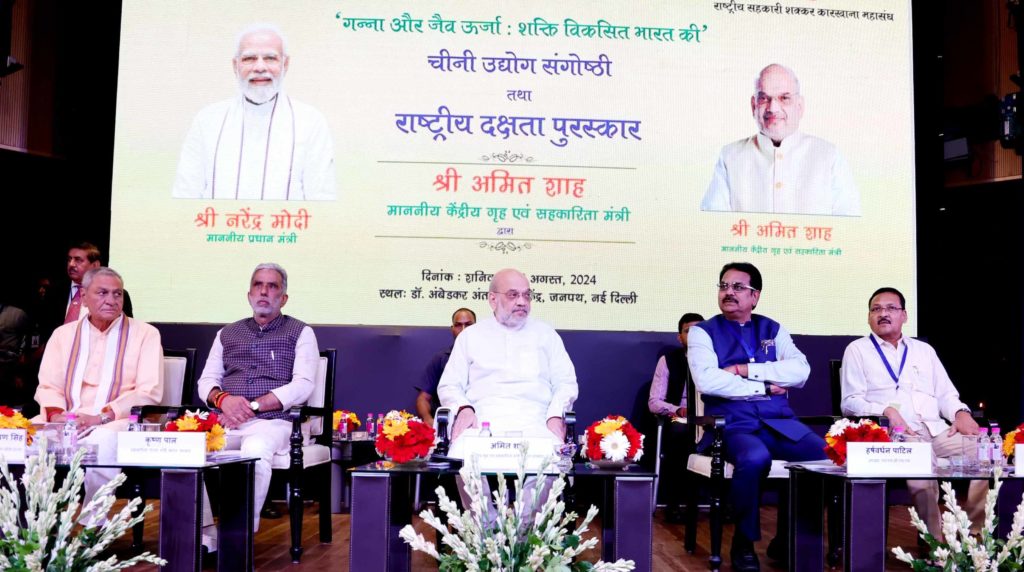Union Home Minister and Minister of Cooperation, Amit Shah, has underscored the significant role of the cooperative movement in driving India’s economic growth. Speaking at the Sugar Industry Symposium and National Efficiency Awards 2022-23, Shah honored cooperative sugar mills with National Efficiency Awards, recognizing their contributions across eight cooperative sectors.
During the event, Shah praised the Modi government’s strategic decision to promote ethanol blending, highlighting the broad benefits this policy has generated across multiple sectors.
He revealed that Prime Minister Narendra Modi is personally overseeing the ethanol blending initiative through a dedicated Group of Ministers, ensuring that targets are achieved ahead of schedule. The government is now aiming for a 20% ethanol blending target by 2025-26, advancing the original deadline set for 2030.
Shah also emphasized the necessity of making sugar mills economically viable and announced the government’s commitment to supporting the establishment of multifaceted biofuel production plants.
He provided statistics illustrating India’s progress in sugarcane cultivation over the past decade. The area under cultivation has expanded by 18%, while production has surged by 40%, leading to a 58% increase in sugar output. Ethanol production, which was negligible in 2013-14, has now grown substantially, with 4.5 million tonnes of sugar being diverted for ethanol production.

Shah further announced that NAFED will procure 100% of maize and pulses from farmers at the Minimum Support Price (MSP), reinforcing the government’s commitment to farmer welfare. He also highlighted that the highest rate for ethanol produced from maize and bamboo has been set at ?71.86 per litre.
The Minister called for an increase in cooperative sugar mills’ contribution to ethanol supply, which stood at 8% in 2022-23, urging this figure to rise to 25%. He advocated for the expansion of cooperative sugar mills, with a focus on ensuring that all profits are transferred directly to farmers’ bank accounts. Shah emphasized the union’s role as a vital link between the mills, government policies, and market innovations.
Reflecting on the historical roots of the cooperative movement in India, Shah pointed out that states like Gujarat, Maharashtra, Tamil Nadu, and Karnataka have been at the forefront.
He noted that, despite its deep cultural roots, the cooperative movement had stagnated post-independence and was limited to a few states. However, this trajectory has changed under Prime Minister Narendra Modi’s leadership, particularly with the establishment of the Ministry of Cooperation, which has spurred significant developments in the sector.
The event highlighted the government’s commitment to rural empowerment, energy security, environmental sustainability, and the growth of the cooperative sector under Prime Minister Modi’s leadership.
